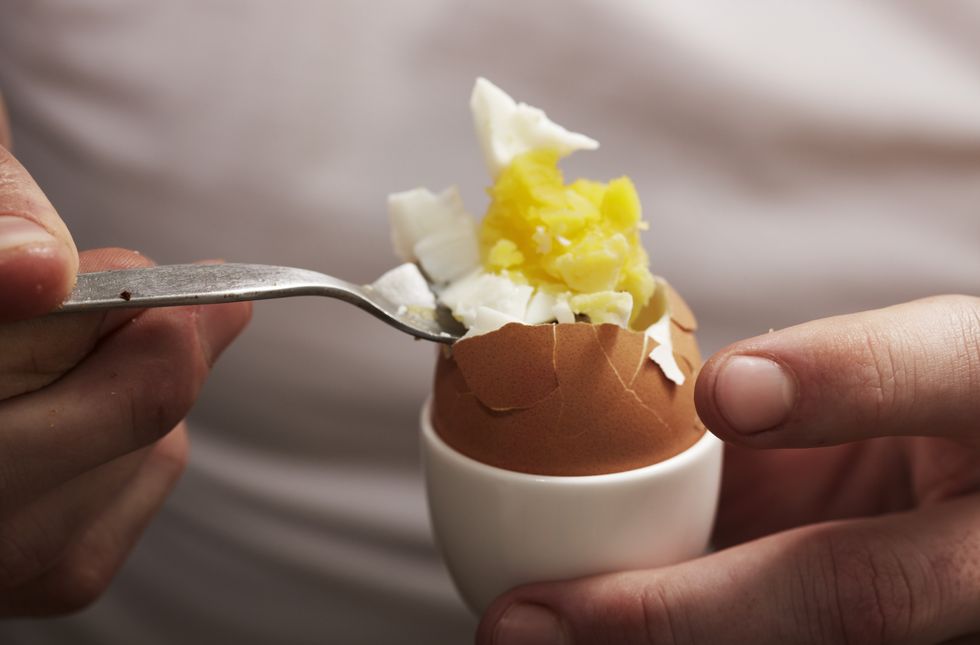Britain's weight loss success stories: Dietitian lists key foods to increase in your diet to prevent the menopausal muffin top

GB News is highlighting the most effective diet and exercise routines helping Britons maintain a healthy weight. This week, an expert in nutrition has unveiled the golden rules for successful menopausal weight loss
Don't Miss
Most Read
Menopausal women face unique difficulties when it comes to weight management, but shedding pounds during the transition phase is entirely possible.
Gaining weight during menopause doesn’t have to be inevitable as long as you have the right dietary approach, according chief medical officer of the Slimming Clinic, Doctor Charlotte Norton.
The expert shared: “If you are already carrying excess weight, you may find that you gain a lot more weight when you are going through menopause.
“Menopause weight gain doesn’t have to be an inevitability, you can look after yourself and either lose or prevent excess weight gain.
“When we enter menopause, our weight gain tends to gather around the middle as visceral fat, and crucially around our vital organs, which can prove dangerous."

Petra says her diet has helped her feel good during the transition period
|TIKTOK / PETRAGENCO
To avoid these physical symptoms, 56-year-old Petra Gencom shared the five foods she eats “every day to stay slim and feel good on menopause” on TikTok.
These are:
- Steaks
- Avocadoes
- Eggs
- Greek yoghurt
- Berries.
“If you notice, there are no processed foods and the foods contain one ingredient,” noted Petra. “I don’t eat processed sugar and this is how I eat all healthy natural whole foods.”
Expert in intimate women's health and menopause Dr Shirin Lakhani advocates making small dietary changes like these, claiming that they have a significant impact.
She also advises increasing water, protein and healthy fat, while reducing dairy and caffeine to prevent unwanted bloating, suggesting that Petra's approach is best.
Tweaking diet is crucial during menopause because the body’s nutritional needs change as hormones drop.
"Our bodies require less energy, but we don’t tend to reduce our food intake and once we have hit menopause, there is an inclination to move less as our joints and muscles become more [prone to aches and fatigue] - add adding up to weight gain," noted Dr Norton.
“It can be really tempting to reduce your exercise when your muscles and joints ache more, but keeping up your activity not only helps with your weight loss but your mobility too.
"It also helps where we might experience a reduction in muscle mass during menopause to keep your muscle density high.”
One of the best ways to slow down changes and gain muscle after menopause is to strength train.
Lifting weight not only builds muscle but boosts the body’s strength while sharpening balance and agility.
Women can increase their strength using machines at the gym or free weights, resistance bands or their body weight exercises.
LATEST DEVELOPMENTS

Eggs are an excellent source of protein
|GETTY
Dr Norton also shared that women require fewer calories during and after menopause, making portion control essential.
“The weight we gain during menopause also doesn’t distribute across our bodies in the same way that it did before either," she noted.
“Once you are in, or have been through the menopause you require much less energy and calories, so by reducing portion sizes, we can help stop some of the weight gain we might see.
“Make sure you are getting at least five portions of fruit and vegetables a day and that your meals are nutritious and healthy.
“Avoid takeaways too frequently and switch to low-sugar or sugar-less drinks.”







